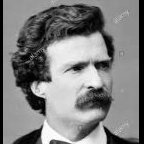Hong Kong democrats score landslide victory in local elections amid political crisis
By
webfact
in World News
-
Recently Browsing 0 members
- No registered users viewing this page.
Announcements
-
Topics
-
Latest posts...
-
23
S/E Asian Thai Consulates going to eVisa online system effective Tuesday Oct 8th
Thats good. I was in Big C the other day and there was a world wide internet crash. Only cash payments were being taken on that day. A lot of people with full trolleys had to go home empty handed. Putting everything online is fine ......... until there is a glitch. May not happen often but if and when it does then it causes a big nightmare. With hackers and scammers getting smarter I still prefer face to face encounters. As an aside , I almost never use my credit card in Thailand except for big purches. Nonethless hackers / scammers somehow got hold of my cc details and went on a one day shopping spree BACK IN THE UK !!! When I got my online bank statement there were purchases for 150 pounds at a Tesco outlet in north London ? I immediately contacted the bank security who at first were reluctant to believe me. It was only when I proved I was in Thailand with my credit card that I was refunded. Paranoid much ? Guilty . But with science fiction often becoming fact I would hardly be surprised to see a Terminator coming up the soi looking for Sarah Conner. -
7
Heavy rainfall expected tomorrow in 27 provinces, warnings issued
West from Bkk only light showers, mostly late afternoon or at night. Daytimes are bright, sunny and hot. -
8
when Donald Trump Wins & Makes Amerika Grape Again
Are you calling Governor Tim Waltz a pedophile? That's a serious allegation not to be done without proof. -
7
Jatuporn Threatens Street Protests Against Casino and Land Lease Plans
if any anti corruption agency here was not corrupt, should urgently check his unusual wealth -
1
Menendez Brothers’ Convictions to be Revisited Amid New Evidence & Interest
Killed both parents with a shotgun while they were sitting on a couch, that's self defence? All the testimony of supposed sexual abuse only came out at trial. There was never any mention of it until then. After killing both parents they then went on a huge spending spree. They were a couple of rich, spoiled, entitled brats. Should never get out. -
17
Met Police Officers Reinstated After Appeal Over Bianca Williams Stop and Search Incident
So why have the Manchester thugs that broke the female police officer's nose at Manchester Airport still not been charged? Any pearls of wisdom on this? The inquiry into the grooming gangs already found that the demographic of the offenders was a huge factor in police investigations. Stop gaslighting. Everyone can see it is happening. -
44
Spreaders of Conspiracy Theories: Unmasking the Motivations Behind the Lies
I don't trust your sources. And you see, you exhibit the usual paranoid projection of "They (could be anyone on your hate list) want you to (fill in as imagined)". I guess you're an American. Maybe most Republicans aren't smart enough to work as journalists? I mean, they sure don't appear to be that smart. -
9
Urgent: Pharmacies that sell HIV PrEP in Bangkok (Sukhumvit area)
so you come here for your urgent cannot keep it in my pants cry for help to cheat on some dirty .... that had 10.000 people before you.... wow -
46
Horrific Bus Fire in Thailand Sparks National Debate on Safety
Bit of a wild statement "There is simply no real fundamental cultural demand for safety" i would try saying that to the victims It is simply every ones responsibility for safety That’s my point exactly. It’s only when they become victims that it dawns on ,then evenly only some ,of them. Why else do they not wear helmets? -
75
Save The Children Urges Action on Child Road Deaths in Thailand
Stupid post on a serious subject shame on you -
3,574
President Kamala Harris
And here the explanation on how you've been lied: Quote from the article: The data isn't only listing people who entered the country during the Biden administration but includes people going back decades who came during previous administrations, said Doris Meissner, former commissioner of the Immigration and Naturalization Service, which was the predecessor to ICE. They're accused or convicted of committing crimes in America as opposed to committing crimes in other countries and then entering the U.S., said Meissner, who is now director of the U.S. Immigration Policy Program at the Migration Policy Institute. "This is not something that is a function of what the Biden administration did," she said. "Certainly, this includes the Biden years, but this is an accumulation of many years, and certainly going back to at least 2010, 2011, 2012." A 2017 report by Homeland Security's Office of Inspector General says that as of August 2016, ICE had about 368,574 people on its non-detained docket who were convicted criminals. By June 2021, that number was up to 405,786. https://ny1.com/nyc/all-boroughs/politics/2024/09/30/ice-data-convicted-migrants-donald-trump-fact-check Now maybe you understand why tweets or videos from crappy sources are not allowed on this forum. Only reliable sources are allowed. -
7
Heavy rainfall expected tomorrow in 27 provinces, warnings issued
In other words: wonderful weather and no monsoon in sight. -
7
Jatuporn Threatens Street Protests Against Casino and Land Lease Plans
He really does need to get a life... -
136
Documentary explores war crimes being posted on social media.
Why don't you move to Iran and go and live there ? -
18
Advisor Urges Public Not to Criticise PM Paetongtarn for using iPad
Can't screw up daddy's words.
-
.png.3b3332cc2256ad0edbc2fe9404feeef0.png)










Recommended Posts
Create an account or sign in to comment
You need to be a member in order to leave a comment
Create an account
Sign up for a new account in our community. It's easy!
Register a new accountSign in
Already have an account? Sign in here.
Sign In Now